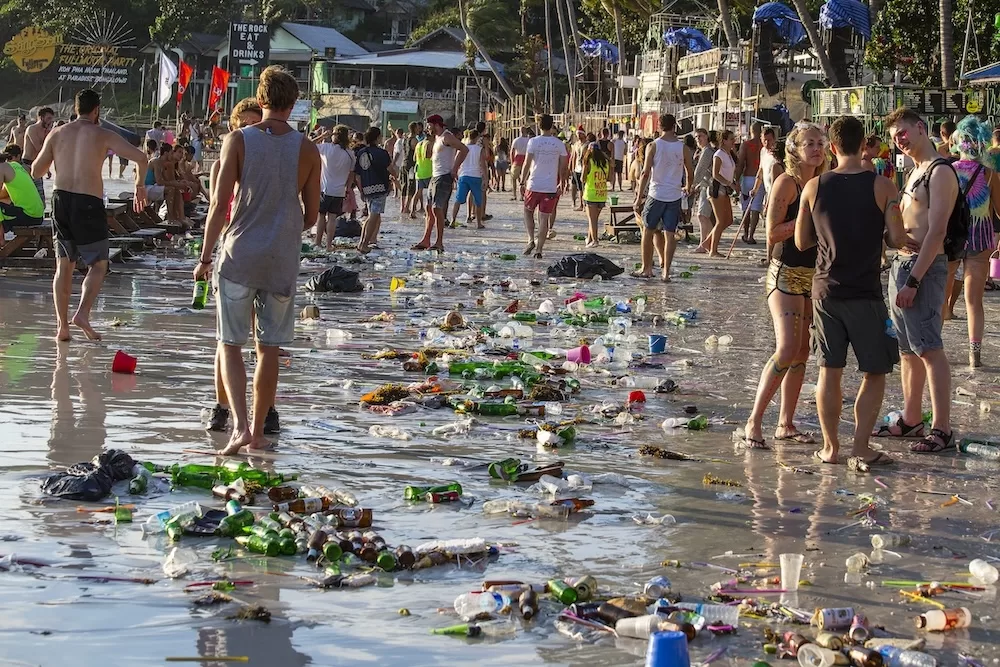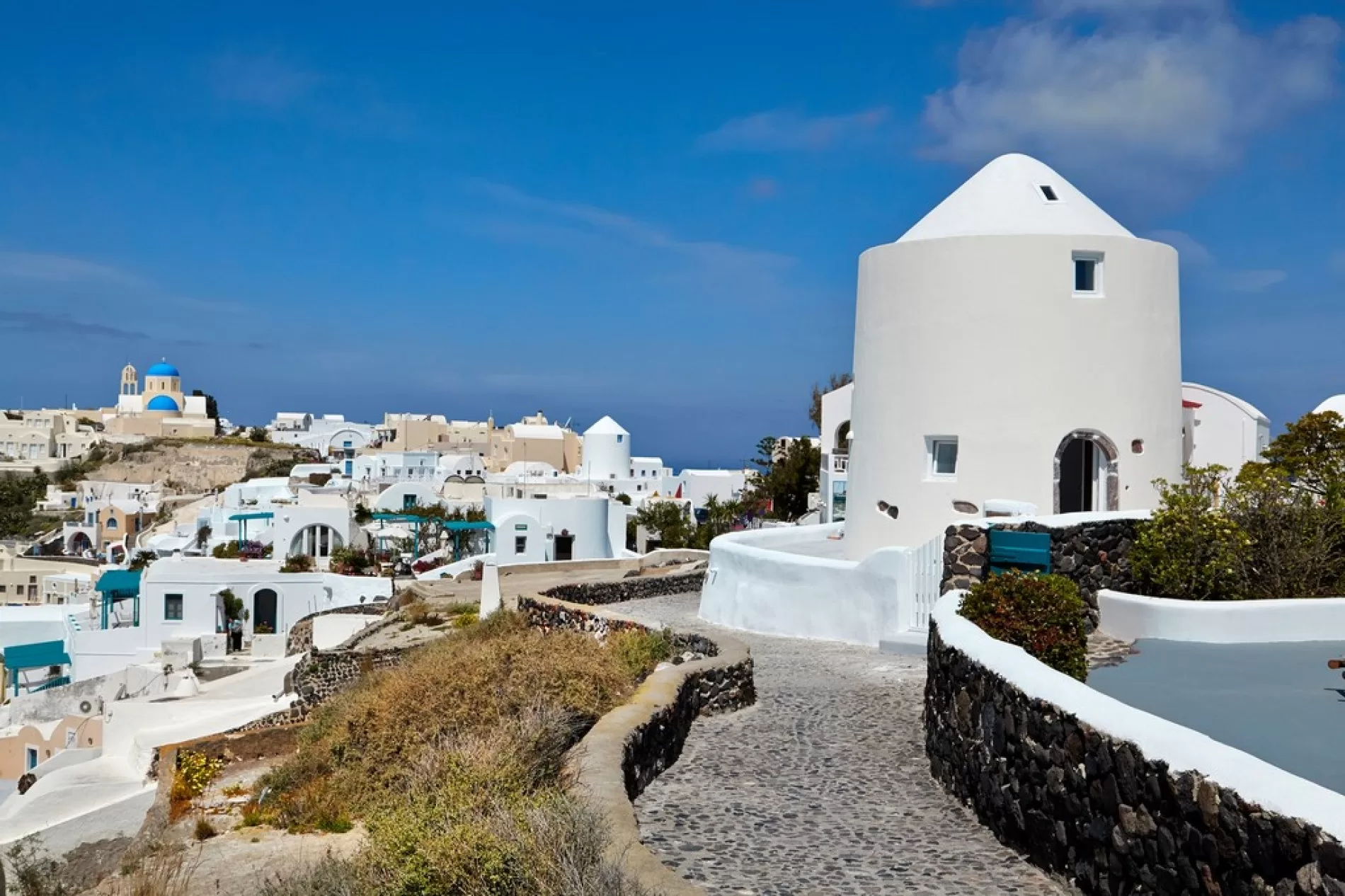7 Ways Digital Nomads Are a Problem (and How They Can Do Better)
A look at the troubling impact of the rise of global remote workers

In the age of remote work and Instagram influencers, a new breed of traveler has emerged, gloriously freed from the shackles of the traditional office: the digital nomad.
These 21st-century adventurers—and there are today more than 40 million of them—flit from country to country with nothing more than a Wi-Fi connection, MacBook, and, according to some, a bulletproof sense of entitlement.
To be clear, we here at Escape Artist believe in long-term travel and the concept of digital nomadism—we often run articles on expat and nomad lifestyles, how they escaped, and where they might go next.
But it has come to our attention that globe-trotting remote workers can be problematic, locally and beyond, in a handful of ways. Many paint themselves as modern-day Marco Polos, discovering “hidden gems” and “immersing themselves in local culture,” while creating some real issues of concern.
From spiking local housing costs to contributing to environmental decay, digital nomads are more than just latte-sipping free spirits—they’re often part of the problem.
So, in an effort to increase awareness and point the way toward more mindful nomadism, let’s break down the top seven ways these wanderlust-ers may do more harm than good.
1. Ubiquitous Gentrification
When a digital nomad “discovers” a quaint little town, you can bet that town is about to go from affordable and authentic to overpriced and overrun with gluten-free bakeries.
Local residents who once paid a reasonable rent must now compete with someone who earns a Silicon Valley salary but spends it in rural Cambodia. Property owners see this, rub their hands together, and suddenly, the rent is higher than a digital nomad’s ego after hitting “publish” on their 37th travel blog post.
In the end, locals are priced out of their own homes, and a cozy fishing village turns into a boutique AirBnB wonderland where you can’t get a decent meal for under $20. It’s simple gentrification, wrapped in a trendy fedora, sipping cold brew from a bamboo straw.
LESSON: Avoid over-promoting and gathering in every emerging “hotspot” destination.
2. Laptop Colonialists
Digital nomads often talk about “living like a local.” But most locals aren’t hanging out in beach bars with their MacBook planning to “scale up” their affiliate marketing firm.
There’s something unsettling about privileged professionals from wealthy countries traveling to poorer nations to take advantage of cheap local resources yet rarely contribute to the local economy. Yes, recent research has found that digital nomads are sometimes able to give a neighborhood an economist boost, but this seems to occur only in certain settings.
If digital nomads were truly interested in local society and culture, they’d do more than snap photos of it for their Instagram. But why do more when there’s a “lovely little cafe” to brainstorm the next listicle on how to live a “location-independent life”?
LESSON: Engage in the community, find out what locals do, want, and need – and make an effort to contribute.
3. Sky-Rocketing Housing Costs
One of the most frustrating things about digital nomads is that they show up in small communities, talk about how they boost the local economy, then rent an apartment at triple the local price.
For someone who’s working remotely, earning in dollars or euros, rent in Chiang Mai or Buenos Aires is pocket change. But for locals who actually live and work in that community?
It’s a real challenge. The cresting wave of remote workers creates greater demand for short-term rentals, driving up prices. Landlords flip their long-term rentals into AirBnBs, forcing many residents to move out.
In the end, neighborhoods that once housed actual communities become transient hubs of tech bros and lifestyle coaches.
LESSON: When possible, stay in hostels and hotels, which don’t drive up local costs.

4. Environmentally Reckless
Digital nomads are proud of how “minimalist” their lifestyle is. But let’s not forget the carbon footprint they’re leaving behind as they flit from Bali to Barcelona to Bogota.
They may brag about their reusable water bottle or bamboo toothbrush, but that’s not going to offset the environmental damage caused by flying more in a year than most people do in a lifetime.
And then there are the “eco-conscious” habits of remote workers staying in places like Thailand or Costa Rica. No matter how much local street food they eat or organic markets they visit, their presence alone leads to the development of tourist infrastructure, which puts a strain on natural resources and contributes to environmental degradation.
LESSON: Embrace slow, regional travel, spending weeks in several towns in Thailand, for instance, rather than bouncing from Europe to South America to Southeast Asia.
5. Paradise Is Now The “Office”
Remember that cute local café you wanted to enjoy during your dream vacation in Bali? Well, good luck finding a table, because it’s now overrun with nomads camped out for the day.
Armed with noise-cancelling headphones and a seemingly endless supply of almond lattes, they’re doing “important” work like building out their TikTok brand. That cafe is now filled with the sound of typing and Skype calls on SEO strategy.
Want to relax by the beach? It’s also been turned into an open-air co-working space. You’ll be fighting for shade with someone trying to close a deal.
Remote work is a fantastic human advancement, but not when it turns every little slice of paradise into another office space, intruding on those aiming to get away from work and relax.
LESSON: Work a bit more at your hotel, hostel, or co-living space, rather than in public.
6. The Illusion of “Effortless Freedom”
The digital nomad lifestyle is often presented as an aspirational utopia: quit your 9-to-5, move to Thailand, and make millions from a beach hammock. This image is perpetuated by influencers who sell courses, e-books, and coaching sessions on how to achieve location independence.
Yet this dream is far from the reality for most of humanity. The freedom nomads enjoy is built on layers of privilege—access to high-speed internet, a Western passport that grants them easy travel, and often, an existing financial safety net should things go wrong.
For most of the world—who do not have high-paying remote jobs and cannot hop on a plane whenever they want—the digital nomad lifestyle is a fantasy. On top of that, some digital nomads find the lifestyle rather lonely and alienating, and spend a good deal of time seeking out ways to meet quality people.
But the glossy way it’s sold online creates a false sense of possibility that can lead to disillusionment for those who try to follow that path and fall short.
LESSON: Be more honest and open about the difficulties of life on the road.
7. They Leave Problems in Their Wake
The digital nomad M.O. seems to be “come, enjoy and leave when the crowd arrives.”
Few stay long enough to engage with the long-term impacts of their presence. Once a destination gets “too popular”—once it’s been discovered by other nomads, as well as expats and travelers, driving up prices—they pack up and move on to the next “hidden gem.” Wash, rinse, and repeat.
Locals are often left grappling with rising living costs, disappearing culture, and environmental degradation, as we’ve seen in places like Bali and Dubrovnik, Barcelona and Mallorca, parts of Costa Rica, and some Greek islands.
Meanwhile, the nomads are getting settled in the next “hidden gem,” sharing #travelgoals, and patting themselves on the back for promoting an under-appreciated travel destination.
LESSON: Be more mindful and return to popular places to get a better sense of your impact.
——————
While the idea of working from anywhere sounds like a dream, the reality is that digital nomads often leave behind a mess as well as a complicated legacy.
They may not see themselves as part of the problem, but their entitled tendencies, coupled with their ability to drive up housing costs and wreak havoc on local environments, seems to suggest otherwise.
So, before you book that one-way ticket to live your best life in paradise, take a minute to make sure you’ll be able to do it the right way, to enjoy your freedom without troubling others.
EA Editorial Staff






















